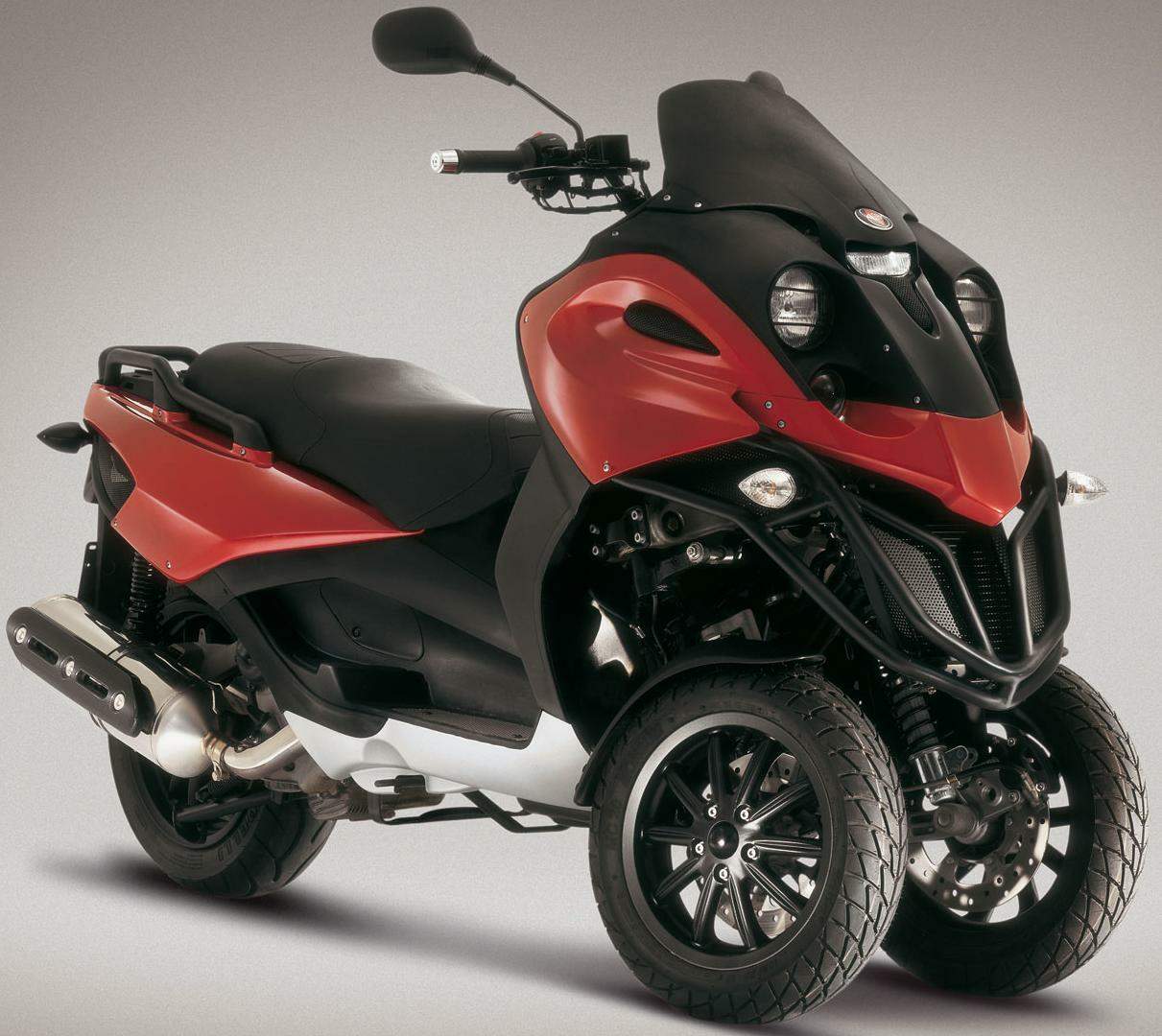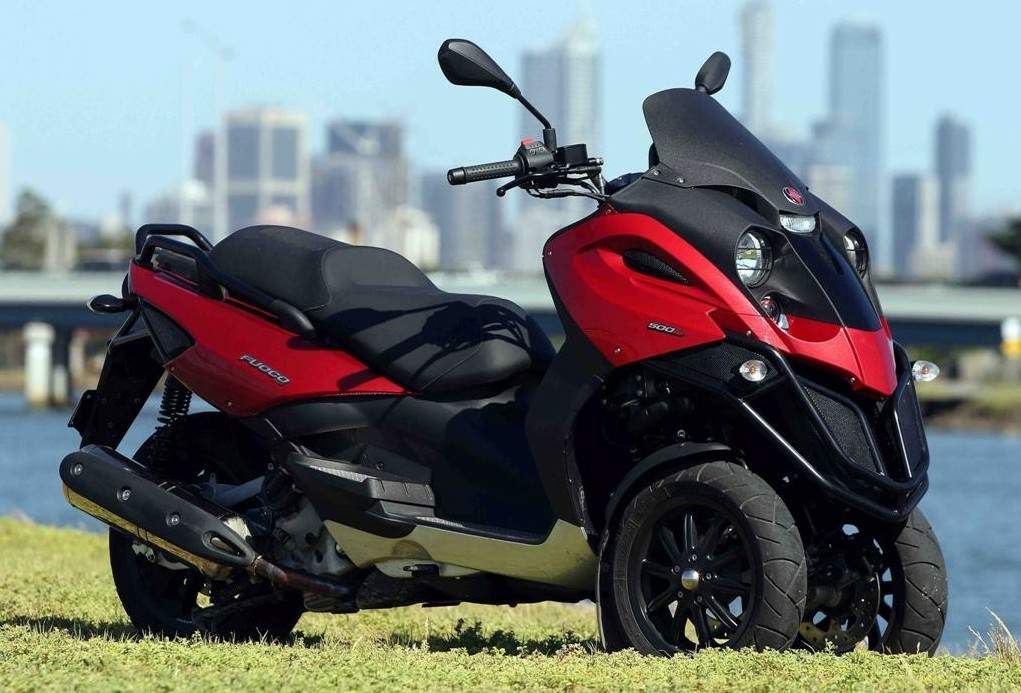I thrashed the little Piaggios and found their roadholding exceptional but, with the MP3 range limited to 125 and 250cc, I wondered how much better the technology would feel with proper power.
Answer: It feels good. Leaping astride an unfamiliar motorcycle, pegging the throttle open and pointing it at a sharp bend is not normally my style but I made an exception. The Fuoco accelerated eagerly and I pitched into the roundabout at 60km/h. The exhaust touched the tarmac but the tyres didn't flinch. In fact the risk of a front-end skid is, for all practical purposes, eliminated
With twice as much
rubber in contact with the road, the Fuoco
tilts and grips with Tigger-ish enthusiasm but
resolutely refuses to bounce.
Ride quality is smoothed by the separate shock
absorber on each of the parallel front wheels.
These devour bumps, even two-up, making the
Fuoco comfortable as well as frisky on
pot-holed streets.
That extra rubber comes into its own again
when you apply the brakes. Emergency stopping
distances are about 20 percent better than on
a two-wheeler and, though it is possible to
lock both the front wheels and the rear one,
there is no risk of falling off if you do.
Riding the Fuoco in town is a breeze, not
least because of the brilliant "roll lock"
suspension-locking system. It works like this:
as speed drops below 10km/h warning light and
beeping audio alert on the instrument panel
combine to inform the rider that they can
stabilise the scooter. This is achieved by
flicking a switch on the right handlebar.
Result? No need to put your foot down to keep
the Fuoco upright at standstill.
With the lock engaged, those tilting front
wheels lock firmly in position.
'Please, what is it?'
Pulling up beside car drivers is fun. The
Fuoco's additional wheel, enormous front
bumper and twin headlights are striking even
to the unobservant. So is its big, comfy seat
but little compares to the look of
astonishment when you pull up at the front of
the queue and sit there with no visible means
of support.
In nearly 20km of urban riding I drew
pointing, stares and a man who just lowered
his window and said "Please. What is it?" With
practice, I managed to lock at an angle to the
vertical and remain seated while canted over.
There is no risk. The lock is released as soon
as you open the throttle. You cannot
accelerate away with your suspension and
steering frozen.
You can always guarantee being at the front of
the queue because the Fuoco retains scooter
dimensions. The single-cylinder 500cc engine
used here is a slightly enlarged version of
the unit deployed on the Piaggio X9 and Gilera
Nexus two-wheelers (32cc bigger). It whisks
the Fuoco away from the lights at a rate cars
cannot match and which surprises
motorcyclists.
Then it pounds up to a motorway maximum of
about 160km/h and cruises comfortably at 140.
I didn't feel intimidated in the fast lane. In
my mirrors I could see the occupants of the
Micra behind debating exactly what was pulling
away from them.
Luggage limited
Gilera is the giant Piaggio group's sporty
marque and the Fuoco is quick enough to
justify the branding. Is it practical? In
terms of comfort and safety it certainly is.
You can hustle this machine over greasy, wet
cobbles without risking a tumble. The riding
position is relaxed enough for long journeys
and cockpit instrumentation is excellent.
Luggage space is limited though; you cannot
fit a laptop into the underseat storage
compartment but there is a rear platform.
In the end this motorcyclist will always
choose two wheels over three. I've spent too
long learning to corner properly to really
cherish a machine that helps a novice to lean
like a GP racer. My suspicion is that most
people who have the full licence required to
ride this cute hybrid will agree.
Whatever, that's subjective. The Fuoco is
fast, safe and expensive. It attracts envy and
fits into motorcycle parking spaces. - The
Independent, London



